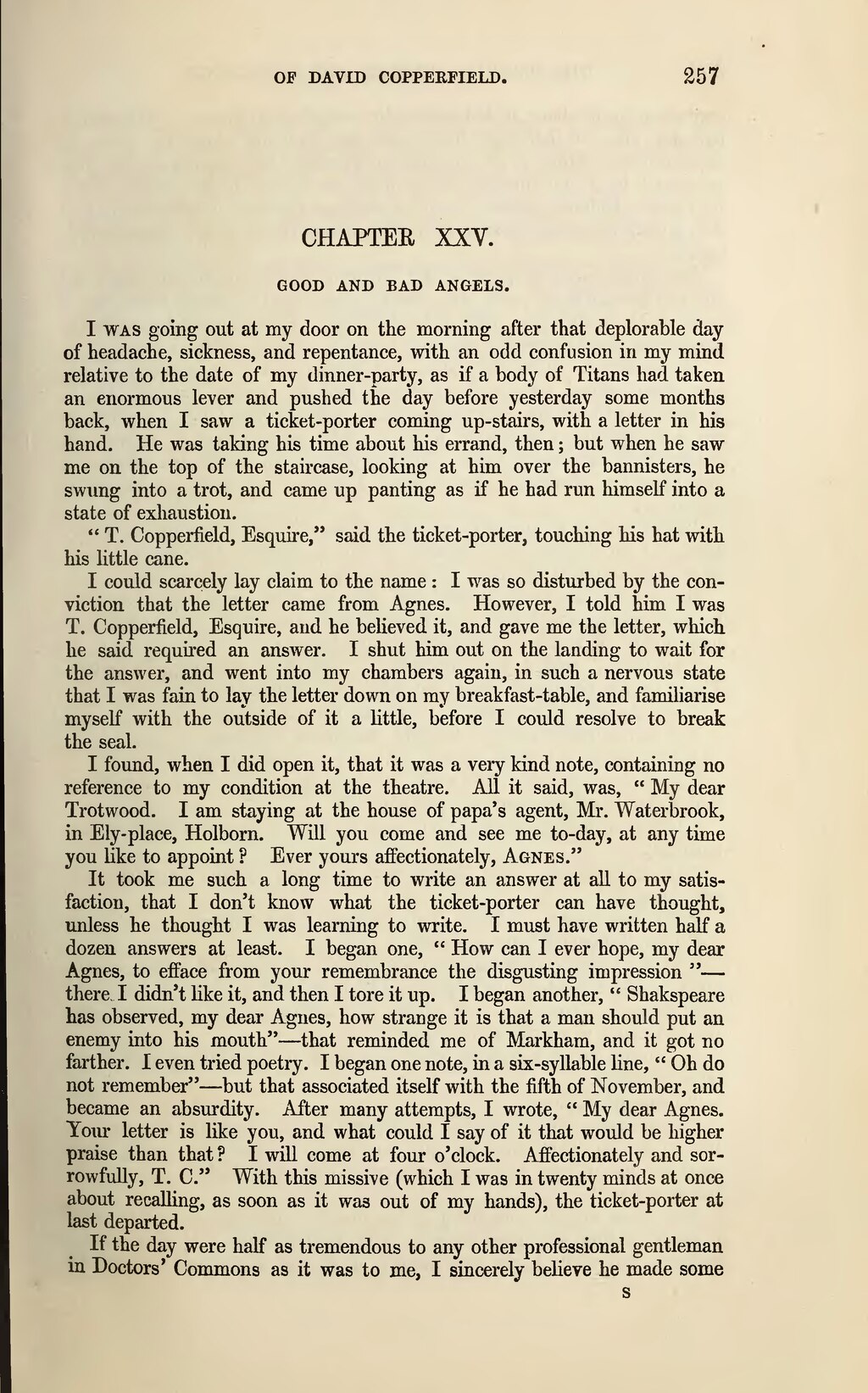CHAPTEK XXV.
GOOD AND BAD ANGELS.
I was going out at my door on the morning after that deplorable day of headache, sickness, and repentance, with an odd confusion in my mind relative to the date of my dinner-party, as if a body of Titans had taken an enormous lever and pushed the day before yesterday some months back, when I saw a ticket-porter coming up-stairs, with a letter in his hand. He was taking his time about his errand, then; but when he saw me on the top of the staircase, looking at him over the bannisters, he swung into a trot, and came up panting as if he had run himself into a state of exhaustion.
"T. Copperfield, Esquire," said the ticket-porter, touching his hat with his little cane.
I could scarcely lay claim to the name: I was so disturbed by the conviction that the letter came from Agnes. However, I told him I was T. Copperfield, Esquire, and he believed it, and gave me the letter, which he said required an answer. I shut him out on the landing to wait for the answer, and went into my chambers again, in such a nervous state that I was fain to lay the letter down on my breakfast-table, and familiarise myself with the outside of it a little, before I could resolve to break the seal.
I found, when I did open it, that it was a very kind note, containing no reference to my condition at the theatre. All it said, was, "My dear Trotwood. I am staying at the house of papa's agent, Mr. Waterbrook, in Ely-place, Holborn. Will you come and see me to-day, at any time you like to appoint? Ever yours affectionately, Agnes."
It took me such a long time to write an answer at all to my satisfaction, that I don't know what the ticket-porter can have thought, unless he thought I was learning to write. I must have written half a dozen answers at least. I began one, "How can I ever hope, my dear Agnes, to efface from your remembrance the disgusting impression"—there, I didn't like it, and then I tore it up. I began another, "Shakspeare has observed, my dear Agnes, how strange it is that a man should put an enemy into his mouth"—that reminded me of Markham, and it got no farther. I even tried poetry. I began one note, in a six-syllable line, "Oh do not remember"—but that associated itself with the fifth of November, and became an absurdity. After many attempts, I wrote, "My dear Agnes. Your letter is like you, and what could I say of it that would be higher praise than that? I will come at four o'clock. Affectionately and sorrowfully, T. C." With this missive (which I was in twenty minds at once about recalling, as soon as it was out of my hands), the ticket-porter at last departed.
If the day were half as tremendous to any other professional gentleman in Doctors' Commons as it was to me, I sincerely believe he made some
